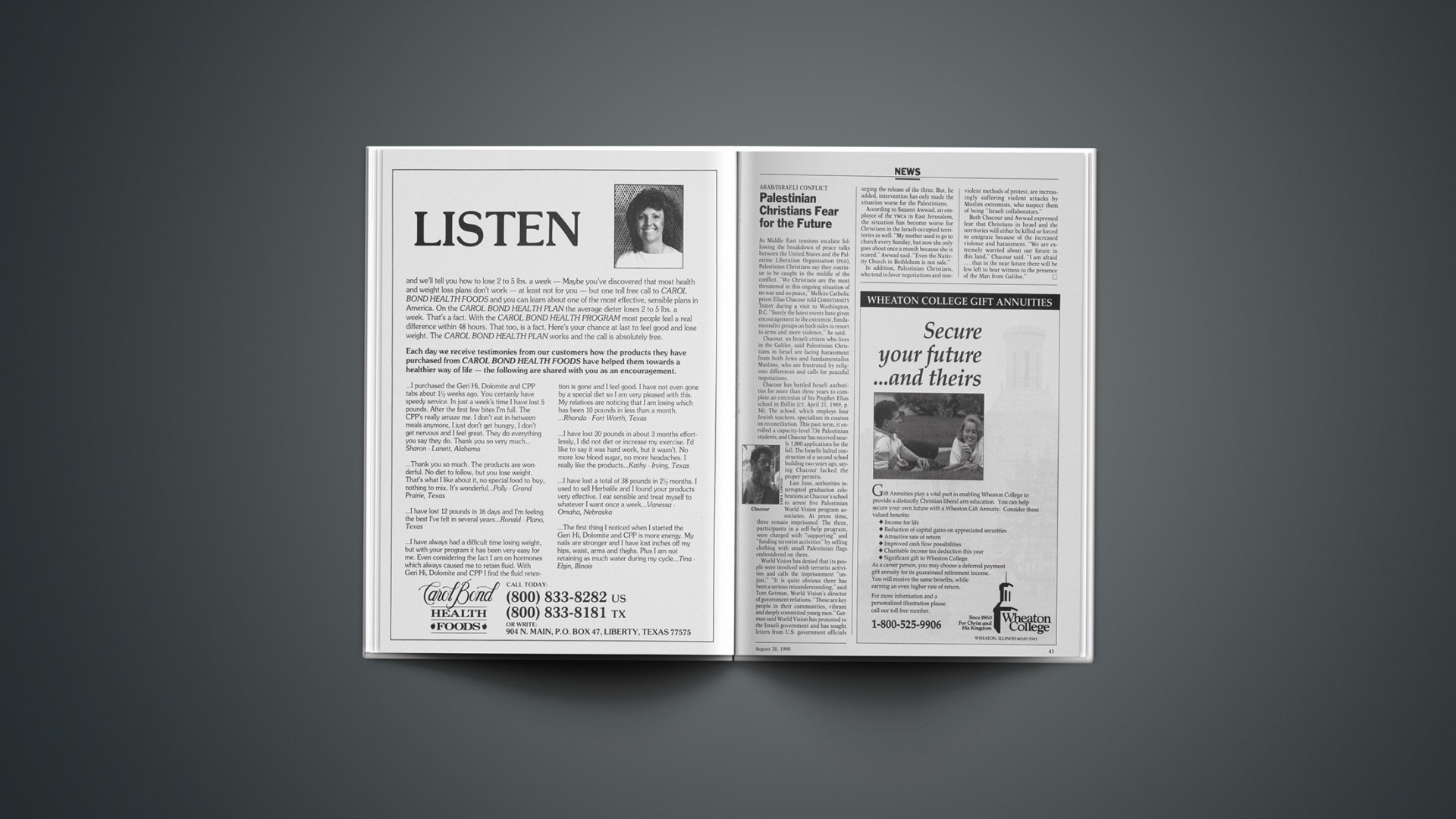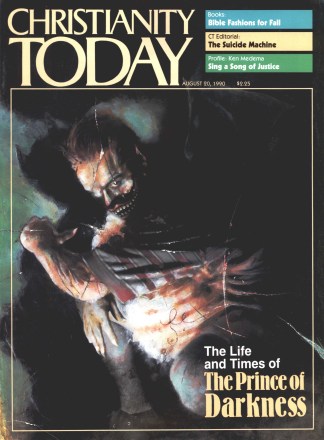As Middle East tensions escalate following the breakdown of peace talks between the United States and the Palestine Liberation Organization (PLO), Palestinian Christians say they continue to be caught in the middle of the conflict. “We Christians are the most threatened in this ongoing situation of no war and no peace,” Melkite Catholic priest Elias Chacour told CHRISTIANITY TODAY during a visit to Washington, D.C. “Surely the latest events have given encouragement to the extremist, fundamentalist groups on both sides to resort to arms and more violence,” he said.
Chacour, an Israeli citizen who lives in the Galilee, said Palestinian Christians in Israel are facing harassment from both Jews and fundamentalist Muslims, who are frustrated by religious differences and calls for peaceful negotiations.
Chacour has battled Israeli authorities for more than three years to complete an extension of his Prophet Elias school in Ibillin (CT, April 21, 1989, p. 34). The school, which employs four Jewish teachers, specializes in courses on reconciliation. This past term, it enrolled a capacity-level 736 Palestinian students, and Chacour has received nearly 1,000 applications for the fall. The Israelis halted construction of a second school building two years ago, saying Chacour lacked the proper permits.
Last June, authorities interrupted graduation celebrations at Chacour’s school to arrest five Palestinian World Vision program associates. At press time, three remain imprisoned. The three, participants in a self-help program, were charged with “supporting” and “funding terrorist activities” by selling clothing with small Palestinian flags embroidered on them.
World Vision has denied that its people were involved with terrorist activities and calls the imprisonment “unjust.” “It is quite obvious there has been a serious misunderstanding,” said Tom Getman, World Vision’s director of government relations. “These are key people in their communities, vibrant and deeply committed young men.” Getman said World Vision has protested to the Israeli government and has sought letters from U.S. government officials urging the release of the three. But, he added, intervention has only made the situation worse for the Palestinians.
According to Suzann Awwad, an employee of the YWCA in East Jerusalem, the situation has become worse for Christians in the Israeli-occupied territories as well. “My mother used to go to church every Sunday, but now she only goes about once a month because she is scared,” Awwad said. “Even the Nativity Church in Bethlehem is not safe.”
In addition, Palestinian Christians, who tend to favor negotiations and nonviolent methods of protest, are increasingly suffering violent attacks by Muslim extremists, who suspect them of being “Israeli collaborators.”
Both Chacour and Awwad expressed fear that Christians in Israel and the territories will either be killed or forced to emigrate because of the increased violence and harassment. “We are extremely worried about our future in this land,” Chacour said. “I am afraid … that in the near future there will be few left to bear witness to the presence of the Man from Galilee.”










